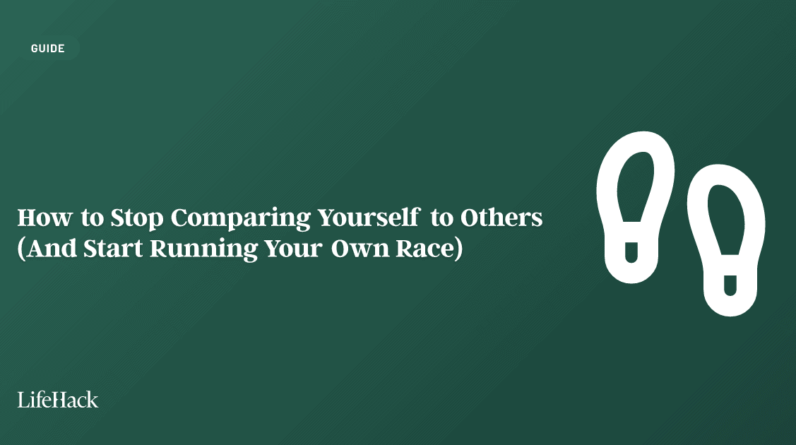
Spring isn’t just about sweeping out dust bunnies and opening the windows.
It’s a feeling. A reset. A quiet invitation to let go of what’s heavy and make room for what breathes life back in.
While you’re busy clearing out closets and scrubbing forgotten corners, don’t forget the clutter you can’t see; the kind that lives in your mind.
You know the stuff.
- The habit of putting things off until panic sets in.
- The endless “yes” when you really mean “no.”
- That voice in your head that whispers you’re not enough.
These mental mess-makers might be familiar, but that doesn’t mean they belong in your life.
This season, let’s do more than clean out the garage. Let’s clear space in our heads and hearts by saying goodbye to toxic habits that drain us. Because you deserve a spring that feels light, clear, and fully yours.
What Are Toxic Habits (and Why We Hold Onto Them)
Toxic habits aren’t always loud or obvious.
Sometimes, they sneak in wearing the disguise of “normal.” You might not even notice how much they’re weighing you down until one day you’re sitting in your car, staring blankly through the windshield, wondering why you feel so exhausted, even though you haven’t done anything.
I’ve been there. For years, I didn’t even call them “toxic habits.” I just thought I was being responsible when I overcommitted myself, helpful when I said yes to everything, and humble when I constantly downplayed my abilities.
Turns out, I was burying myself under layers of people-pleasing, perfectionism, and quiet self-criticism.
The thing about these habits is that they serve a purpose, at least at first. They protect us. They help us fit in, avoid rejection, or feel in control. But over time, what once helped us survive can start to suffocate us.
Maybe you grew up in a home where speaking up led to conflict, so now you silence your own needs to keep the peace. Or maybe you got used to tying your worth to productivity, so the idea of resting makes you feel guilty. These patterns become second nature.
But just because they’re familiar doesn’t mean they’re you.
Toxic habits stick because they’ve carved deep grooves in our routines and identities. They feel safe, even if they’re slowly stealing our joy. That’s why spring is such a beautiful time to challenge them; it gives us a reason to pause, reflect, and ask, “Is this still serving me?”
In the next few sections, we’ll break down three common toxic habits and explore gentle ways to start letting them go.
No shame.
No pressure.
Just a little sunlight and some honest self-reflection.
Habit #1: Procrastination: The Thief of Peace
Procrastination always feels like a break… until it becomes the reason you can’t rest. I used to tell myself I worked best under pressure. That looming deadlines gave me a creative edge. But the truth? I was just scared to start. Starting meant facing the possibility that what I created might not be perfect and perfection was my twisted measure of worth.
Procrastination isn’t laziness. It’s fear wearing comfy pajamas. Fear of failure, fear of not doing it “right,” fear of not being good enough. So we scroll, snack, clean, re-watch shows we’ve already memorized… all while the real task hangs in the back of our mind like a shadow.
Spring Reset for Procrastination: Progress Over Perfection
This season, try a new rule: done is better than perfect. Start with just 15 minutes. Set a timer and begin.
No strings attached. More often than not, those first few minutes are enough to build momentum. You don’t have to conquer the mountain today. Just put on your shoes and step outside.
I started doing “spring sprints” – short bursts of focused work followed by a walk, a snack, or even a stretch in the sun. It’s amazing how a little structure and self-kindness can turn a dreaded task into a manageable one.
Let this be the season where you stop punishing yourself for not doing everything and start celebrating yourself for doing something.
Habit #2: People-Pleasing: The Burnout You Didn’t See Coming
People-pleasing often masquerades as kindness, cooperation, or being “easygoing.”
But beneath the surface, it’s a habit rooted in fear; fear of disappointing others, of being disliked, or of causing conflict. Over time, it chips away at your identity, leaving you exhausted and disconnected from your own needs.
The mental clutter this habit creates is real. Your mind becomes filled with other people’s expectations, constant overthinking about whether you said or did the “right” thing, and a growing pile of silent resentments. You give so much of yourself away that there’s nothing left when you finally need support.
It’s okay to care about others. But it’s not okay to abandon yourself in the process.
Spring Reset for People-Pleasing: Boundaries Are Self-Respect in Action
Start by tuning into the moments when your “yes” feels heavy. If your stomach drops or your energy drains just thinking about a commitment, that’s your signal. You don’t need to justify your “no.”
You don’t need to overexplain. A simple, respectful boundary is enough.
Try creating a “boundary reset list” this season. Write down what you’re no longer available for, like answering work texts after hours or saying yes to plans you dread, and what you’re making space for instead, like rest, joy, or aligned relationships.
Spring is about reclaiming space. And saying no is one of the most powerful ways to make room for your own life again.
Habit #3: Negative Self-Talk: The Voice That Holds You Back
We all have an inner voice, but when that voice becomes a constant critic, it turns into mental clutter that’s hard to escape. Negative self-talk sounds like quiet jabs:
- “You’re so lazy.”
- “You always mess things up.”
- “Why can’t you be more like them?”
Over time, those thoughts start to shape how you see yourself and what you believe you’re capable of.
This habit doesn’t just affect your confidence. It affects your choices, your relationships, and your willingness to try. You might avoid opportunities not because you’re unqualified, but because you’ve convinced yourself you are. That voice can become so normal, you barely notice it’s even there.
But here’s the truth: the way you talk to yourself matters. And just like any habit, self-talk can be rewired.
Spring Reset for Negative Self-Talk: Talk to Yourself Like Someone You Love
Start by noticing your inner dialogue. Don’t judge it. Just observe.
When a critical thought comes up, pause and ask, Would I say this to a friend? If the answer is no, it doesn’t belong in your mind.
Next, try replacing that thought with a neutral or gentle truth. Not false flattery; just something kind and grounded. For example: Instead of “I’m such a failure,” say “I had a hard day, but I’m still trying.” Write down a few supportive phrases that resonate with you and keep them somewhere visible: your mirror, your phone lock screen, or even tucked in your wallet.
This spring, plant seeds of compassion in the space where criticism used to live. You’ll be amazed at what starts to grow.
How to Start Your Spring Habit Reset
You don’t need a full life overhaul to make meaningful change; just a starting point.
The key is to begin gently and intentionally. Choose one habit you’d like to shift. Just one. Overloading yourself with goals only creates more noise, and this season is about clearing space, not cramming it.
Think of your habit reset like spring planting:
- Awareness is the soil, so start by noticing the habit without judgment.
- Interrupting the pattern is the seed, so pause when it shows up.
- Replacing it is the watering, so choose something new, even if it’s small.
Use a journal or notes app to track your progress for the next few weeks.
Don’t just log actions; log how you feel.
- Are you more clear-headed?
- Less reactive?
- More energized?
These internal shifts are often the most powerful signs that change is working.
If it helps, create a weekly theme. For example:
- Week 1: Awareness (spot the habit)
- Week 2: Interrupt (practice a pause)
- Week 3: Replace (try a new behavior)
- Week 4: Reflect (celebrate progress)
Give yourself permission to move slowly. Growth that lasts doesn’t rush.
Ditching Toxic Habits This Spring: Cultivate Your Inner Garden
Spring reminds us that growth doesn’t have to be loud to be powerful. Sometimes, the most meaningful transformations happen quietly; one small shift, one healthier choice, one kinder thought at a time.
Letting go of toxic habits isn’t about becoming someone else. It’s about clearing away what no longer serves you so that who you really are can breathe. Think of it like tending to a garden: you pull the weeds, loosen the soil, and make space for something beautiful to take root.
This season, choose peace over perfection. Boundaries over burnout. Self-respect over self-criticism. And when the old habits come knocking (and they will), greet them with awareness and gently close the door.
You’re not starting over. You’re starting fresh.
Photo by Anna Shvets







